Chicks!
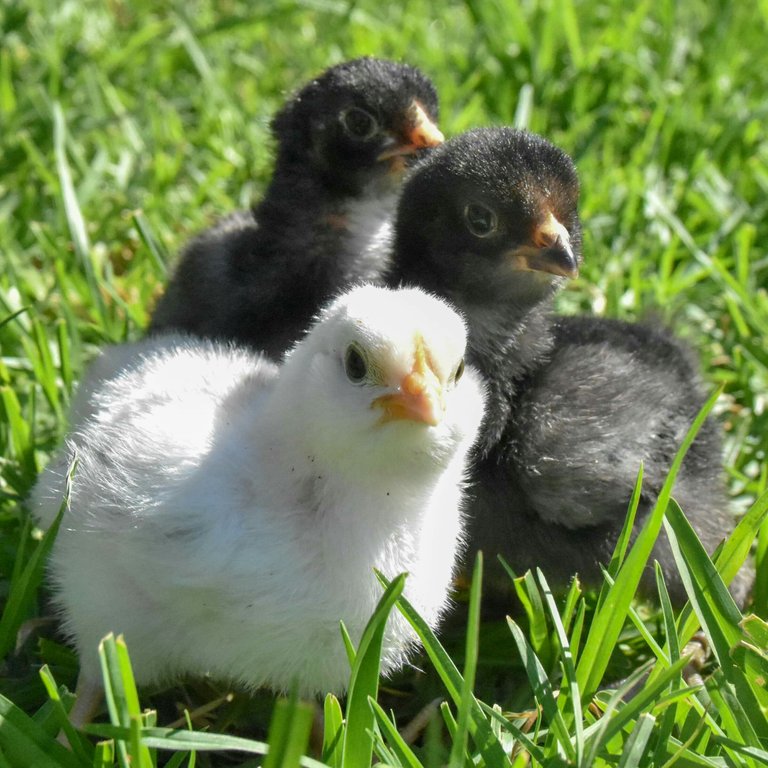
Those fluffy little balls on legs are almost too cute to resist, but can get you into all sorts of trouble. You see, if they aren't sex links or an auto sexing breed, there's no way to tell whether they are male or female, unless you're an expert vent sexer and even they can make the occasional mistake.
Something that comes up so often in the local Feathered Friends Facebook group are cockerel problems. As in, “I have a problem, some of my chicks turned into cockerels!”
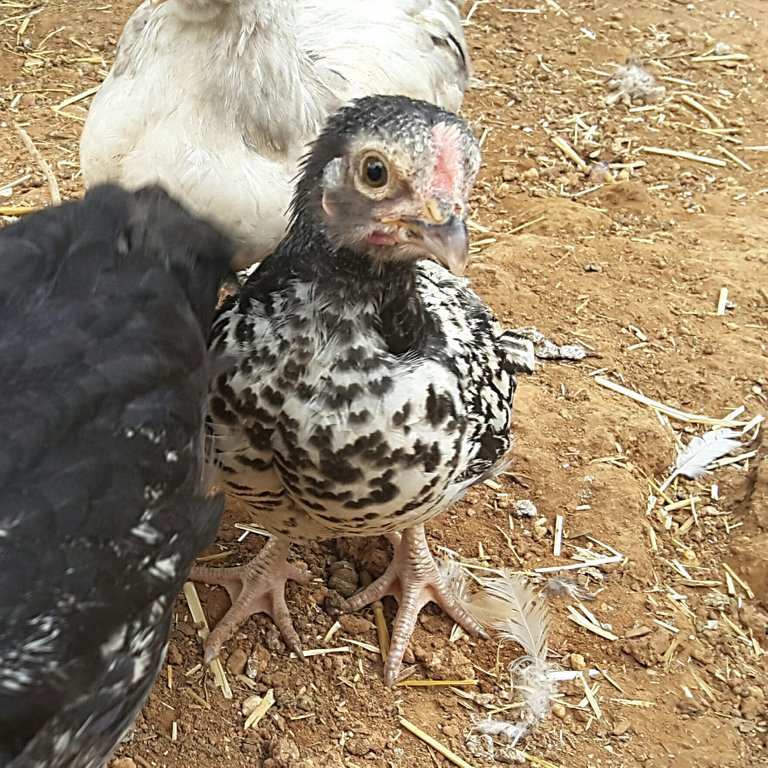
The prettiest ones are always the cockerels!
School hatchings often stir up some arguments over the irresponsibility of schools having incubators brought in so the kids can watch chicks hatch, when they then get parents to take them home, not informing them that not every chick will become a hen to lay eggs. The family then get distraught that they have bonded with this very noisy chicken that the council and neighbours don't want them to keep.
The fact is that, on average, 50% of chicks will be female and 50% male. Sometimes you get lucky and have more females, sometimes unlucky and it's more males. If you're really unlucky they can even all be male. Unfortunately, this seems to be a more common occurrence than being super lucky and getting all females.
Some of you might think that it would surely be common sense that there would be both male and female chicks in a hatch. You also might assume that everyone knows that there's a difference between roosters and hens. To that I'd say you probably haven't been asked the question, “why isn't my rooster laying eggs yet?” No, it wasn't a joke, apparently. I had to explain that roosters don't lay eggs any more than men have babies...
Well here's the brutal truth. If you get unsexed chicks or hatch chicken eggs, you are going to have to figure out what to do with the cockerels. If you hand raise them, you will likely bond with them and despite what you might believe, cockerels often bond with people more closely than many pullets (young female chickens) do. Many people live in built up areas and can't keep them because they're too noisy, then they end up in our group pleading for someone to take them into a good home. While some are rehomed, most of us already have all the roosters we need and they have to face the fact that humane slaughter may be their only option. Especially when they are the school hatchings, because they are usually hybrids and not even useful for making new hybrids.
Even if you can keep a rooster, it's not going to be okay to keep them on a one to one level with hens. Unlike people, chickens don't pair off in loving relationships. A rooster will need a minimum of three hens, so that his amorous advances don't all fall on one or two hens and end up killing them. Even with a large flock, the rooster will have favourites and you can easily tell which ones they are, because they'll likely have bare backs and sometimes injuries which need tending to. Chicken saddles are a thing, but they're there to protect their backs from over attentive roosters not for pixies to ride them. Imagine all that attention and harassment going onto one hen! The roosters will also fight each other for mating rights and while a large enough flock might be able to accommodate two or three roosters, with one being dominant, any more and they will likely fight to the death. There are people who rescue roosters, to try and save as many as they can from slaughter, but they keep only roosters, or a separate flock of only roosters, so that they have no reason to fight, other than little pecking order squabbles.
Anyone looking at keeping chickens should bear this all in mind when they buy them. The easiest way to avoid rooster problems is obviously to keep only hens and the best way to make sure you only get hens is to buy them at what is known as point of lay (POL). This means they will start laying soon, but also that they will have matured enough for most people to be able to tell easily that they are female. I can't tell you how many people come to us saying they were sold young pullets only to have them start crowing. Either we have a lot of unscrupulous breeders around or they were sold them unsexed and are too embarrassed to admit it.
If you're wondering why someone might buy them as chicks rather than at point of lay, it's likely to be the price. You'll pay much more for a pullet that has been fed for the last 5 months than one that has just come out of the brooder at 6 weeks. Even cheaper are day olds, but they’ll need heat for the next 6 weeks.
My favourite rooster question in the group this week was, “can someone swap my two roosters with hens of a similar quality?” Queue explanations that a rooster does not equal a hen.
A few more rooster facts.
A good rooster provides for his hens and will call them over if he finds food. He'll also intervene in flock squabbles, either berating the lower ranking hen he feels is causing the problems, or stepping physically between them if they are equally important to him.
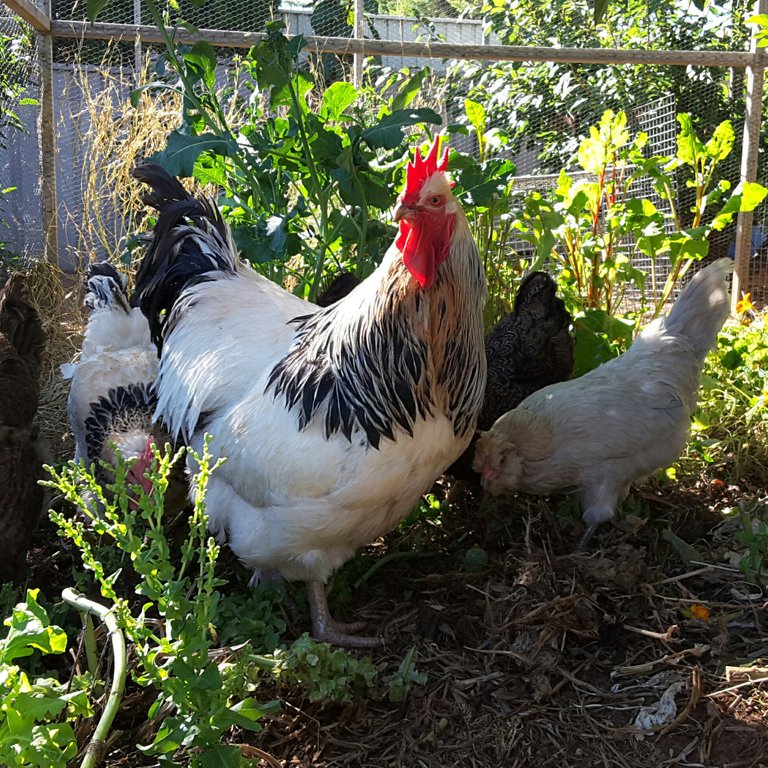
Roosters are the flock leaders and protectors. This has earnt them the reputation of being aggressive and it's well earnt! It's what made them popular at one point for that dubious entertainment known as cock fighting. I was once told that in the Philippines people would keep ex cock fighting champions to protect their property and some even kept the metal fighting spurs on them! No, I'm not supporting cock fighting, but a guard rooster seems like a clever idea. They aren't stupid, either, and they will know the difference between their own humans and strangers.
Some people are happy to have an aggressive rooster, if they free range their flocks, so that he'll protect them from potential predators, because they have been known to give their lives for their flocks and when you realise this you start to understand why it's necessary in nature for them to fight and take out the weaker ones. The safety of the flock could well depend on them. Someone told a story of how his rooster went for a bear that had come into the farm. What he did saved the lives of his flock, giving them time to escape and alerting the farmers. Sadly he didn't escape himself.
So it's a rooster’s instinct to be aggressive to protect his flock, but they can also be big softies with their humans. I've kept two roosters, one I called my gentle giant, but he did go for my husband and father at one point. They had to let him know they were the boss, chicken style; which is to push their head down into submission position, while holding them securely to stop them hurting themselves, or you, if they struggle. It's most certainly not beating them into submission (yes, I've heard of people doing that and it's doesn't have the desired results)!
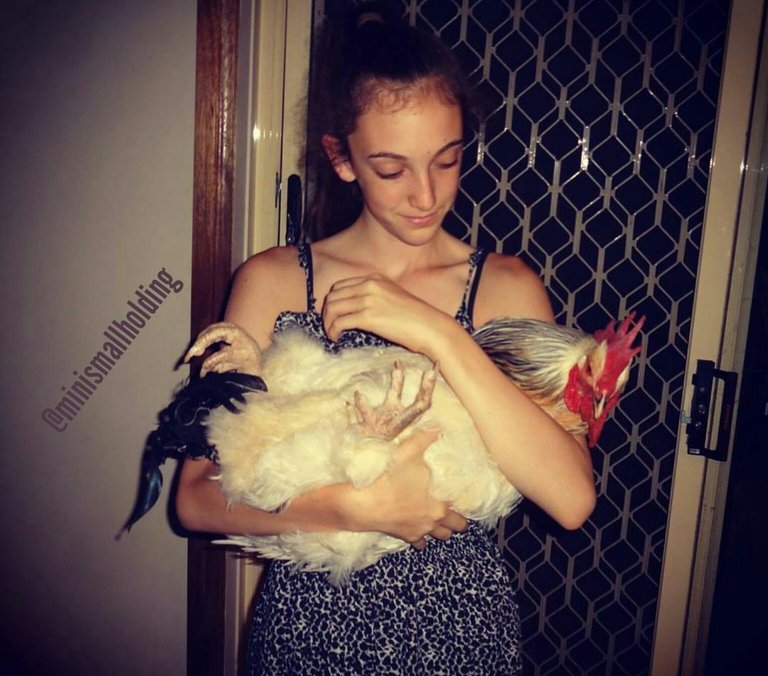
One of my favourite pictures of our gentle giant.
He never hurt me or my daughters, except when I once got a peck in the aviary, because he heard one of the hens being attacked by another just the other side of the screen from me and thought I was hurting her! It took just one look from me and his head went down until I shooed him out to deal with his squabbling hens. He wouldn't have made a guard rooster, because he only went into action if he thought his hens were being harmed.
Our other rooster became a bit problematic because he started challenging everyone, even me on occasion. Yet once I picked him up he still loved his cuddles as much as always. We had to keep asserting our place with him, though. The smaller ones seem to be the feistiest. He'd probably have made a good guard rooster!
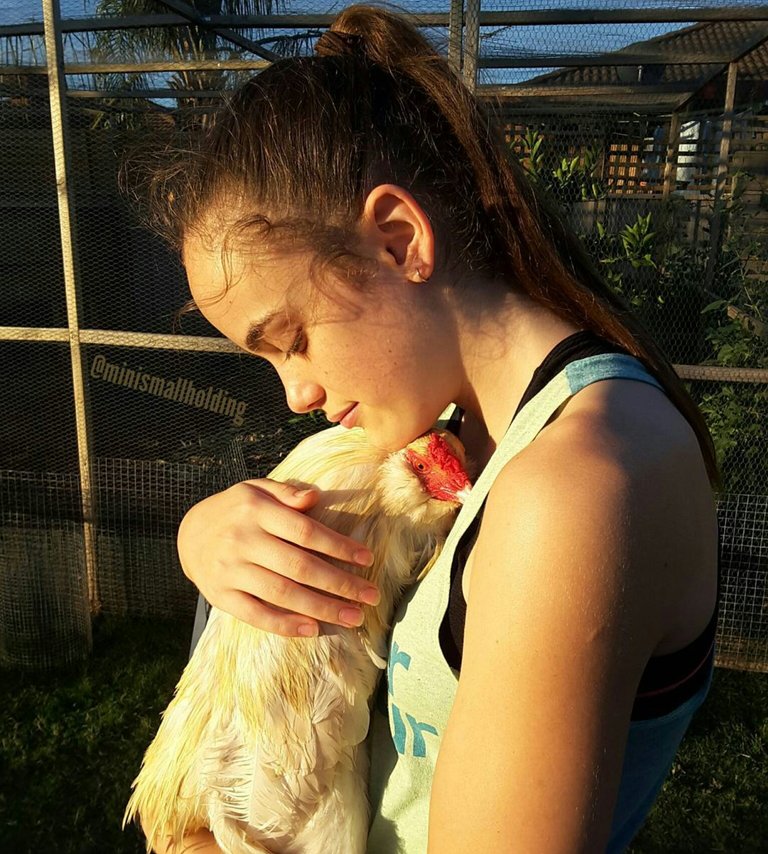
Like butter wouldn't melt in his mouth!
As chickens become more popular, as pets as well as egg providers, my biggest piece of advice is to do your research before you get them and don't get left holding too many roosters!
One can tell Barred Rock roosters, they have reverse coloring.
We have a well behaved Australorp rooster out there right now. He doesn't bother us or the hens. He doesn't crow much either. So he will last til Labor Day when we do Freezer Camp.
But mostly, we don't have roosters, as my husband can not stand the crowing.
I did wonder why you don't breed. We're in suburbia, so when we have a rooster he goes into a crate in the shed each night and we don't hear him. Even the neighbours don't always know we have one.
That makes sense with the barred rocks. I have a legbar and I believe it's the barred part of them which gives the auto-sexing colouring.
Well, that is a big part of it. But breeding takes a lot of energy and room, neither of which we have. Plus we need at least 50 birds ready to butcher by fall, and there's no way we could produce that. We'd also need 18 pullets of laying quality ready to lay in October, and wouldn't accomplish that either.
The idea of breeding your own is intriguing, but for us, the reality isn't practical.
Wow! I learnt a lot here ( and yes I already knew that roosters don't lay eggs hahaha ) Amazing storytelling and beautiful pictures.
Big hug,
Vincent
Can't make assumptions, though! 🤣
Thank you.
:<)
Back when we had roosters we were really lucky with the neighbours and the council workers. We checked in with the neighbours and all of them apparently really liked roosters (most of them were seniors so perhaps it reminded them of childhoods on farms or at least when there was lower population densities and less ridiculous restrictions? XD) so we got away with our roosters and hens and the inevitable millions of chicks.
We had two usually that got on alright with each other (or at least got on enough to agree to be on opposite sides of the house that they would just circle around with their flocks) and the rest ended up in the freezer because we're evil selfish circle of life types.
JJ decided not to breed this time round so we just have girls who stay in the coop and don't get to roam around outside like our last lot did.
I wonder if the flocks circling the house would have been a nice deterrent to anyone's considering breaking in. Do you think your roosters would have gone for strangers?
I don't think people know enough about chickens around here to be worried about the roosters, plus the ones we had were pretty small and only aggressive towards each other if anything (we got rid of the aggressive ones as the kids were small enough to have eyes taken out at the time).
Even the dogs were more scared of the broodies than the roosters XD There was a time where the two big dogs went charging up to the front to bark at someone passing and my Japanese bantam hen was out there with her clutch and she saw these two gigantic canines barrelling towards her, couldn't work out which direction to run to get away from them, so she fluffed up and charged them. Both dogs skidded to an abrupt halt, backpedalled rapidly and then full on turned tail and fled. Meanwhile JJ who was on the patio with a cuppa nearly spat his tea XD
Aw - love those photos of poultry cuddles. I used to ahve a huge sussex called Massive. Yep, coz he was a Massive cock.
Love the stupid questions about raising roosters - really hilarious. Can I swap a rooster for two hens of a similiar quality? Good luck with that, and your roos laying eggs. Oh dear.
Yes, swapping the roosters for hens got quite the response, but probably not the ones they were hoping for! There were a lot of laughing emojis on the question.
Yeh, gotta love those massive cocks! 🤣
Yeah, Illl stick to my husband though :P
Don't get left holding too many roosters. 🤣 Sounds a bit like the tatters of my love life. 🤣
Curated for #naturalmedicine (by @artemislives) - join our community here.
We encourage content about health & wellness - body, mind, soul and earth. We are an inclusive community with two basic rules: Proof of Heart (kindness prevails) & Proof of Brain (original content). Read more here.
That a huge bird and very loving!
The big ones are often the gentlest.